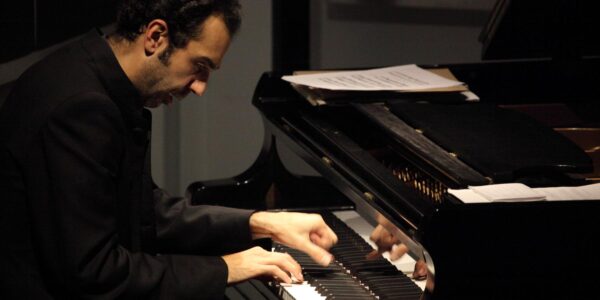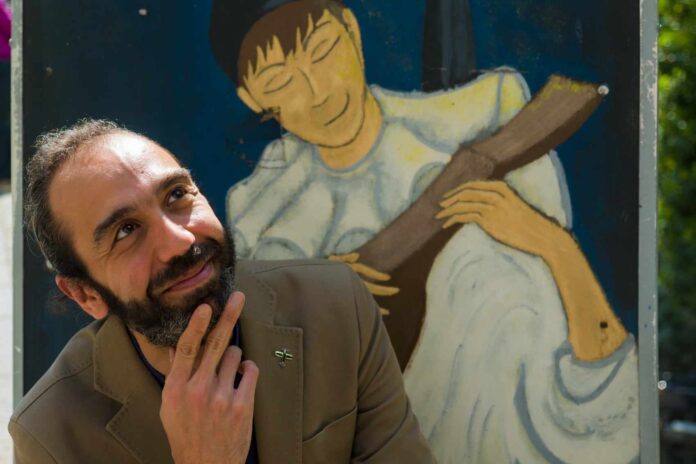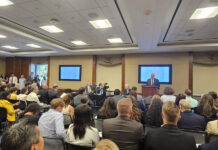YEREVAN-MADRID — Pianist, composer, teacher, musical manager Ruben Yessayán was born in Madrid in 1978 to Armenian father and Spanish mother. He began his musical studies at the age of eight. He obtained his professional title through the Arturo Soria Conservatory, studying piano with Rafael Solís and harmony with Enrique Igoa. In 1998 he joined the Manhattan School of Music in New York, where he studied piano with Nina Svetlanova and chamber music with Isidore Cohen. He obtained a Bachelor´s degree in 2002 and a Master’s in 2004. He gave recitals in Europe, Africa and the US. As a composer and arranger, his works have been premiered in Europe and the US. He has been the artistic director of the International Festival “Villa de Medinaceli” since 2007. In 2013 he founded Musica Humana, an interdisciplinary project with a renewed concept of the concert experience within classical music. He has also been appointed since last January the director of the Maria Rosa Calvo-Manzano Municipal School for Music and Dance in Madrid.
“…rarely have I heard such a lesson in interpretative grace…Rubén Yessayan knew how to play the piece in a tender and exquisite manner, falling in love with it and making us witness the miracle of its creation in a cold and grey afternoon…a pianist who presented a varied program, quite like a mosaic, and transported us with the magic of his interpretation…thanks particularly to his interpretative quality, his good taste and wise talent…” (Ideal de Granada – J. A. Lacarcel – “When the piano becomes poetry”). “…his recent recording on the Verso label rendering the first book of Preludes on the Debussy Year, displays an unorthodox and imaginative program – Book I from Préludes and Children’s Corner – which rivals in freshness and poetic gestures with the Debussy of Crossley or Lubimov , revealing at the same time the major talent of a multifaceted player, open and demanding (Diverdi Magazine, David Rodríguez Cerdán)” (from https://www.rubenyessayan.com).
Ruben, let’s start our conversation with the festival you lead and the project you founded. What new dimension do they bring to modern classical music scene?
Well, these are two very different projects which in the beginning grew in my mind as two artistic beings that would complement each other since at that time I was very much involved with expressing my musical and artistic personality in different contexts. As you know, in many occasions in the world of Art you begin with an idea, thinking it will be developed and executed in a certain way, but somehow ends up breathing a life of its own. So this is basically what happened with these two projects; one of them, the festival, remained as a constant in my musical life whilst the other one took more the form of an experiment which due to lack of funding had to be interrupted, although many of the things that we tried and accomplished I think remain dormant within my creative spirit, waiting to be transformed into an artistic reality that will only reveal itself when the time is right.
Regarding the Music Festival, this began as a project that was meant for the long term and I can honestly say that after 16 seasons our team managed to accomplish the main objective of creating some sort of a durable Institution. It is a festival that has remained small and humble in resources and structure but very big in spirit and creativity. As it happens with all artistic projects of modest size and funding, you have to become very creative with your ideas, your mission and your programming, since I think nowadays music festivals are not just venues for music dissemination but can transform into socio-cultural networks which in our case bridge the world of music and musicians with cultural heritage and sustainable economics in the context of provincial life, being as we are located quite far from any important urban area.

Thanks to you, Armenian music is played regularly in Spain. You are also the composer of unique contemporary modern musical compositions. Can they also be considered examples of Armenian music?








